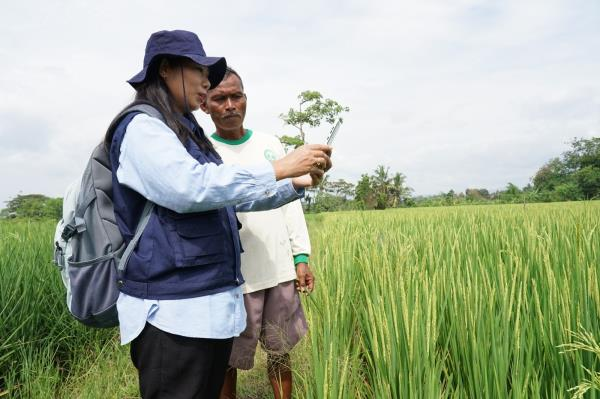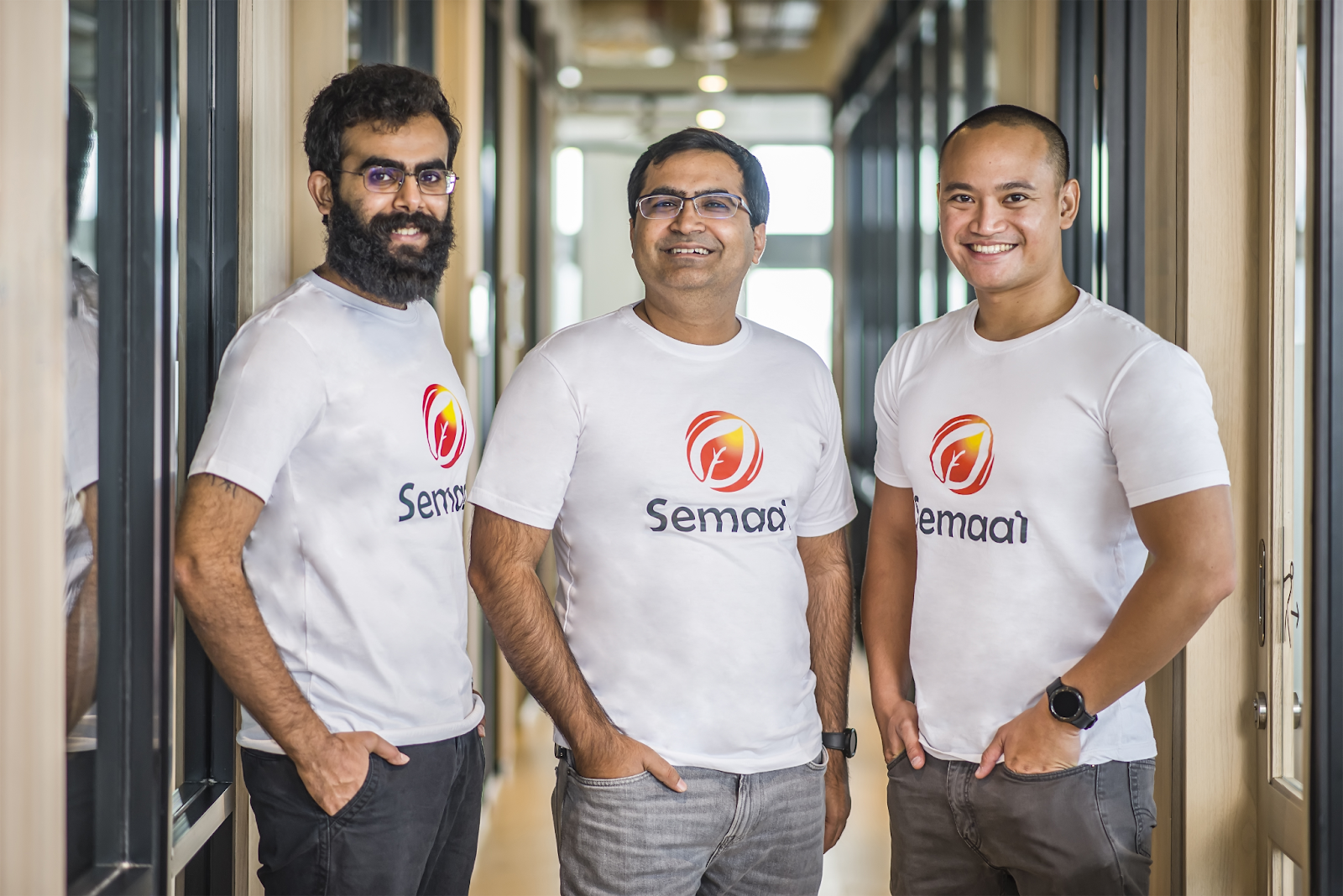
Indonesia, home to over 270 million people, is an agricultural powerhouse where millions of smallholder farmers form the backbone of the nation’s food supply. Yet the sector has long struggled with inefficiencies—from fragmented supply chains to limited access to finance and technology. In recent years, however, a wave of agritech startups has emerged to modernize farming and create more sustainable, profitable ecosystems.
Proving this momentum, these new players are tackling everything from input distribution and farmer financing to produce logistics and rice exports. Their rise underscores the growing importance of digital agriculture in Indonesia and the diverse approaches being used to solve systemic challenges. Here, we spotlight six agritech startups redefining the future of farming and food in Southeast Asia.

Founded in 2016, TaniHub Group set out with a simple mission: to bridge the gap between Indonesian farmers and consumers. Smallholder farmers often face a lack of access to markets, forcing them to sell produce at unfairly low prices to middlemen. TaniHub addresses this by building a digital platform that directly connects farmers with buyers, including restaurants, retailers, and households.
The startup has expanded to cover more than 45,000 farmers and serves thousands of business clients. With its e-commerce model, TaniHub has grown into one of Indonesia’s leading B2B agritech companies. By streamlining the distribution chain, it ensures farmers receive better prices while customers gain access to fresher produce at competitive rates.
In 2021, the company secured a US$65.5 million Series B round led by MDI Ventures and Telkom Indonesia, signaling strong investor confidence in digital agriculture’s future. Today, TaniHub continues to expand its operations while advocating for a more transparent and equitable food supply chain.

Semaai, founded in 2021, is a fast-rising agritech startup that provides a full-stack solution for smallholder farmers in rural Indonesia. The company integrates input distribution, advisory services, and access to markets in a single digital platform. Its mission is to create a “farmers’ super app” that addresses multiple challenges simultaneously.
Semaai leverages technology to provide farmers with real-time agronomic advice, affordable inputs, and market insights. By digitizing the agricultural value chain, it reduces inefficiencies and improves crop yields. Within just two years, Semaai has expanded its reach to thousands of farmers across Java and beyond.
In 2022, the company raised US$1.25 million in seed funding led by Surge and Beenext, underscoring investor belief in the scalability of digital farming solutions. Its holistic approach has drawn comparisons to India’s DeHaat, showcasing how Southeast Asia is embracing integrated agritech models.

AgriAku, founded in 2021, is building a digital marketplace for agricultural inputs. Farmers traditionally rely on local kiosks that often have limited supply and inconsistent pricing. AgriAku solves this by offering a wide variety of agricultural products—fertilizers, seeds, pesticides—through its online platform, ensuring affordability and quality.
The company has grown rapidly, partnering with more than 10,000 agri-supply kiosks across Indonesia. Its B2B2C model ensures that even smallholder farmers in remote areas can access high-quality inputs at fair prices. By digitizing this critical part of the supply chain, AgriAku is contributing to more efficient and transparent agricultural markets.
In 2022, the startup raised a US$6 million seed round led by Go-Ventures and MDI Ventures, reflecting strong investor confidence. Its focus on empowering rural communities makes it one of the most promising players in Indonesia’s agritech ecosystem.
In recognition of its impact, AgriAku was included in the Forbes Asia 100 to Watch 2025 list. This milestone highlights the startup’s growing regional influence and underscores its role as a key driver of agricultural innovation in Southeast Asia.

Sayurbox, founded in 2016, is a fresh-produce e-commerce platform that connects Indonesian farmers directly with urban consumers and businesses. By building its own logistics and cold chain infrastructure, the company reduces layers in the supply chain, ensuring fresher produce at more competitive prices for both households and restaurants. This model helps farmers gain higher margins while providing consumers with affordable, healthy food.
The company has attracted significant investor interest. In March 2022, Sayurbox raised USD 120 million in Series C funding co-led by Northstar Group and Alpha JWC Ventures, with participation from IFC, Astra, and Syngenta Group Ventures. This capital allowed the startup to expand operations, strengthen its B2C delivery platform, and grow its B2B network serving hotels, restaurants, and retailers.
Despite facing margin pressures and workforce downsizing in 2023, Sayurbox remains a key player in Indonesia’s agritech ecosystem. Its dual consumer–enterprise model, combined with data-driven demand forecasting, positions it to keep innovating in the online grocery space while pursuing its vision of affordable, healthy food at scale.

Founded in 2015, Crowde focuses on one of the most critical challenges for Indonesian farmers: financing. Traditional banks often view smallholder farmers as high-risk clients, limiting their access to capital. Crowde solves this problem by creating a peer-to-peer lending platform where urban investors can fund rural farmers.
Through Crowde, farmers receive capital to purchase seeds, fertilizers, and equipment, while investors earn returns once crops are harvested and sold. This model not only democratizes investment in agriculture but also empowers farmers to improve productivity and livelihoods. By 2020, Crowde had financed more than 30,000 farmers across 19 provinces in Indonesia.
The company has also partnered with financial institutions like Bank Mandiri and introduced digital tools for better farm management. Its approach highlights how financial inclusion, enabled by technology, can uplift entire agricultural communities.

Indonesia’s agritech movement is still in its early stages, but the momentum is undeniable. From farm-to-table e-commerce to peer-to-peer financing, startups are tackling inefficiencies that have long constrained the sector. Each of these players—whether in inputs, logistics, finance, or exports—demonstrates how technology can rewire food systems to be more inclusive, sustainable, and profitable.
At the same time, the road ahead is not without hurdles. Scaling operations in a fragmented market, balancing profitability with affordability, and ensuring long-term farmer adoption remain pressing challenges. Global macroeconomic conditions and the capital-intensive nature of agritech may also test the resilience of these ventures. Yet, the progress so far signals that investors, policymakers, and farmers are increasingly aligned in pushing digital agriculture forward.
What makes Indonesia’s story compelling is its combination of scale and necessity. With millions of smallholder farmers forming the backbone of the economy, even incremental improvements can generate outsized impact. As these startups mature, they are not only reshaping domestic agriculture but also positioning Indonesia as a potential leader in agritech across Southeast Asia.
0 Comments